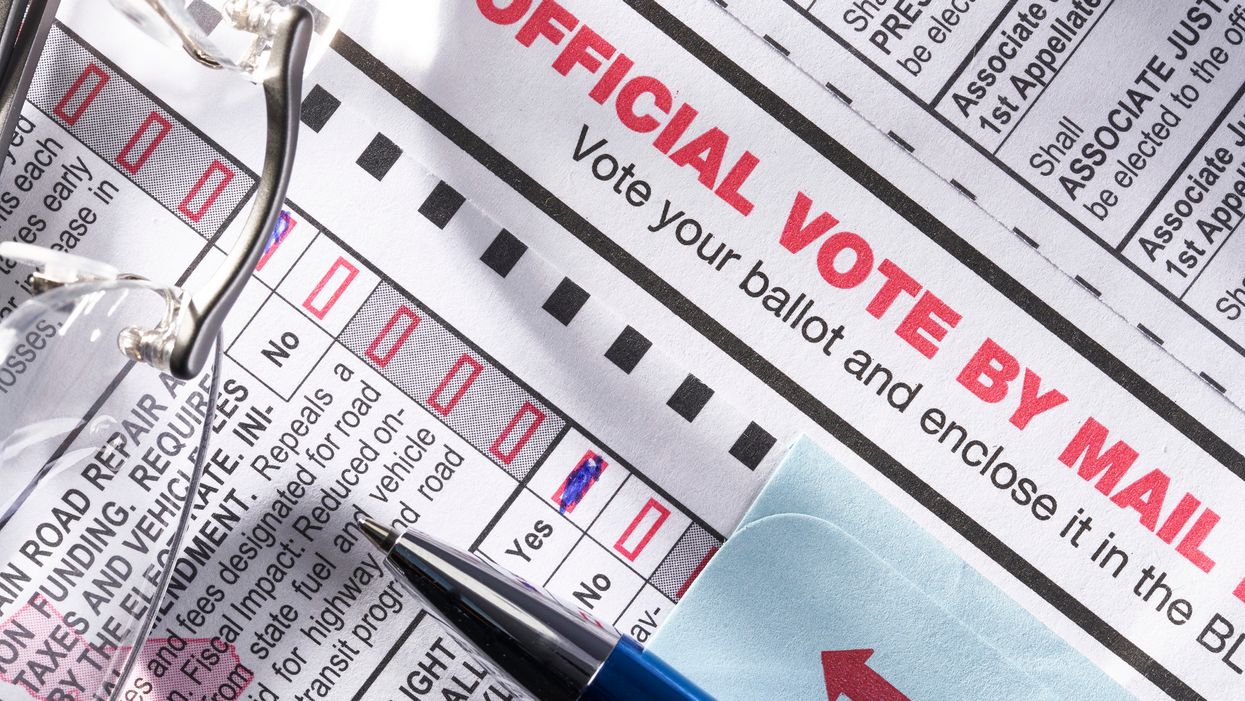In recent years, competition between the Democratic and Republican parties to gain a tactical edge in elections has centered on technology — who had the most sophisticated system for identifying potential voters and getting them to the polls.
This time, though, the leaders of the Democratic congressional campaign organizations have settled on a new strategy: going to court.
The party has gained scattershot headlines in recent months by filing federal lawsuits in mostly purple states, alleging an array of their election laws are unconstitutional voting rights violations or contradict federal law. But the ambitions of this strategy, and the size of the investment, did not become clear until last week.
The Democratic Senatorial Campaign Committee and the Democratic Congressional Campaign Committee, the two party entities charged with helping elect members of the party to Congress, announced that they were making an "eight-figure investment in a legal strategy across key battleground states."
That means their investment in all the litigation will be at least $10 million, a significant sum but a relative drop in the bucket for campaign organizations that spent a combined $343 million on the 2018 midterms.
Eight states, mostly in the South, have been targeted for litigation so far: Arizona, Florida, Georgia, Michigan, Minnesota, North Carolina, South Carolina and Texas.
Democratic leaders say they are attempting to counter a decades-long voter suppression campaign by Republicans — ideally in time to make it easier for many more of the voters in their base to get to the polls in November.
They are confident that making it easier to register to vote and to cast ballots will generally favor Democratic candidates. Traditionally, African-Americans and other ethnic minorities, who vote overwhelmingly for Democrats, have been disproportionately affected by efforts to prevent people from registering and voting.
The registration lawsuits include one in Texas challenging a law prohibiting the use of electronic signatures on registration forums.
Lawsuits filed about voting methods include one in Georgia to challenge the high rate of rejection of absentee ballots.
And laws that put the names of GOP candidates first on the ballot are being challenged with lawsuits in Arizona, Florida, Georgia, Minnesota and Texas.
The suits already have produced results with, for example, a federal judge ruling the Florida ballot order law, which has favored the GOP for decades, is unconstitutional.
A total of 14 lawsuits were filed in recent months and more are on the way.
So far this election cycle, the DCCC and the DSCC have reported paying the law firm Perkins Coie nearly $900,000 for legal services. The firm is the one that files the voting rights lawsuits.
The party is mounting plausible campaigns for Senate seats in every one of the states where it's filed suits except for Minnesota and Florida, a perpetual battleground that does not have a senator's seat on the ballot this year. It is is defending or targeting almost 30 competitive House districts in the eight states. Every one of them except Minnesota voted for President Trump four years ago, but he's targeted that state this time while the Democrats have aspirations to contest all of the rest (except South Carolina) come November.




















